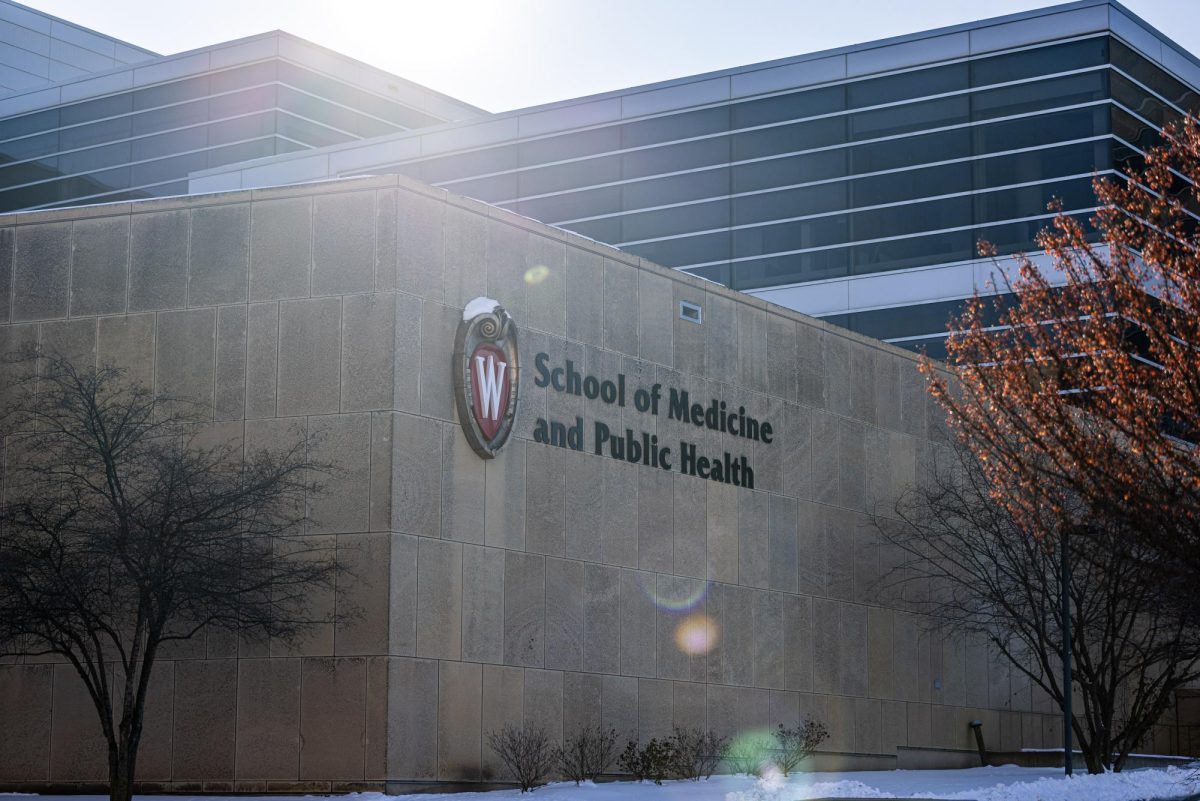University of Wisconsin doctors and faculty are working on a potential treatment for Sjögren’s syndrome. In 2022, Dr. Sara McCoy partnered with the UW Program for Advanced Cell Therapy to search for immunotherapy options for Sjögren’s-related dry mouth.
PACT is a joint program between the UW School of Medicine and Public Health and UW Health that focuses on developing immunotherapy treatments using human cells. PACT extracts white blood cells or stem cells from a patient, activates them in an external environment and then injects them back into the patient.
Sjögren’s disease is a chronic autoimmune disorder where the immune system attacks the moisture-producing glands in the body, according to an article from the National Institute of Arthritis and Musculoskeletal and Skin Diseases. These glands include the salivary gland, tear glands and other glands located elsewhere in the body. Common symptoms included dry eyes, dry mouth, swollen salivary glands, digestive tract issues — due to a lack of moisture in the gastrointestinal tract — and fatigue, according to Mayo Clinic. Sjögren’s syndrome can be difficult to diagnose as many of its symptoms overlap with other diseases, but it is diagnosable by blood tests, a salivary gland biopsy or Schirmer’s test, which is used to assess tear production, according to an article from the National Library of Medicine database.
According to the Sjögren’s Syndrome Foundation, four million Americans are predicted to have this condition, nine out of 10 of them being women. Sjögren’s is difficult to diagnose, thus there have not been many recent surveys or statistics published to reflect the true number of people that have Sjögren’s disease. There is no treatment on the market currently — doctors instruct patients to use eye drops and special toothpaste to reduce pain in the mouth.
Recently, the first person in the world received immunotherapy from McCoy and her team for Sjögren’s syndrome, according to WisBusiness. During the clinical trial, participant Julianne McGowan received the first-ever treatment and noted how her mouth had more moisture post-treatment.
“We harvest the cells from the patient’s own bone marrow, so they’re called autologous, meaning their own cells, and we enhance the cells in a culture dish in our laboratory,” McCoy said. “Then, we activate them with specific cytokines. These cytokines help regulate immune responses, so we reinforce patients’ cells with these cytokines.”
Then, McCoy and her team can freeze patients’ cells down, modify them and store them until they are ready to go back into the patient.
According to an article from the National Institute of Dental and Craniofacial Research database, humans have two large salivary glands right under their chin. McCoy and her team extract a cluster of cells from the salivary gland, activate them with cytokines and then inject the cells back into the salivary gland. By extracting cells from these glands, McGowan reported feeling less pain and said her mouth was insulated with saliva.
Since the patient’s cells are reinjected back into their glands, the risk of this procedure is minimal, McCoy said. Patients may experience a little pain at the injection site, but other than that, the risk remains low.
McCoy evaluates the success of her team’s clinical trials based on the well-being of the patients.
“We will measure saliva flow to determine if our patients are making more saliva,” McCoy said. “We look at the quality of the saliva as well.”
Data will be extracted from a sample of 12 individuals over the age of 18. The participants will be monitored over two years by the PACT team.
The trial is still in a pre-phase one or phase zero phase. It is anticipated that after three years of testing, the FDA will approve and implement the novel immunotherapy, McCoy said. After about 10 years, the drug should be commercially available.
Chief of the Division of Rheumatology at the UW School of Medicine Dr. Christie Bartels has high hopes for this study. The UW campus is bustling with discoveries, and it is important for UW students to be cognizant of what is going on on campus and how they can get more involved, Bartels said.
“I would really encourage UW students to get involved through rheumatology and other areas,” Bartels said. “Autoimmune diseases disproportionately affect women, and most autoimmune conditions do not have effective therapies or even cures. Cutting-edge therapies like this could offer not only therapies but also potentially cures in the future.”
Students are involved in various aspects of her clinical trial, including recruiting patients, conducting basic work and performing advanced surgical techniques, McCoy said.
As Sjögren’s syndrome persists in millions of Americans, McCoy and her team’s experimental immunotherapy has proved effective in the early clinical stages, which increases the likelihood of developing a treatment.



